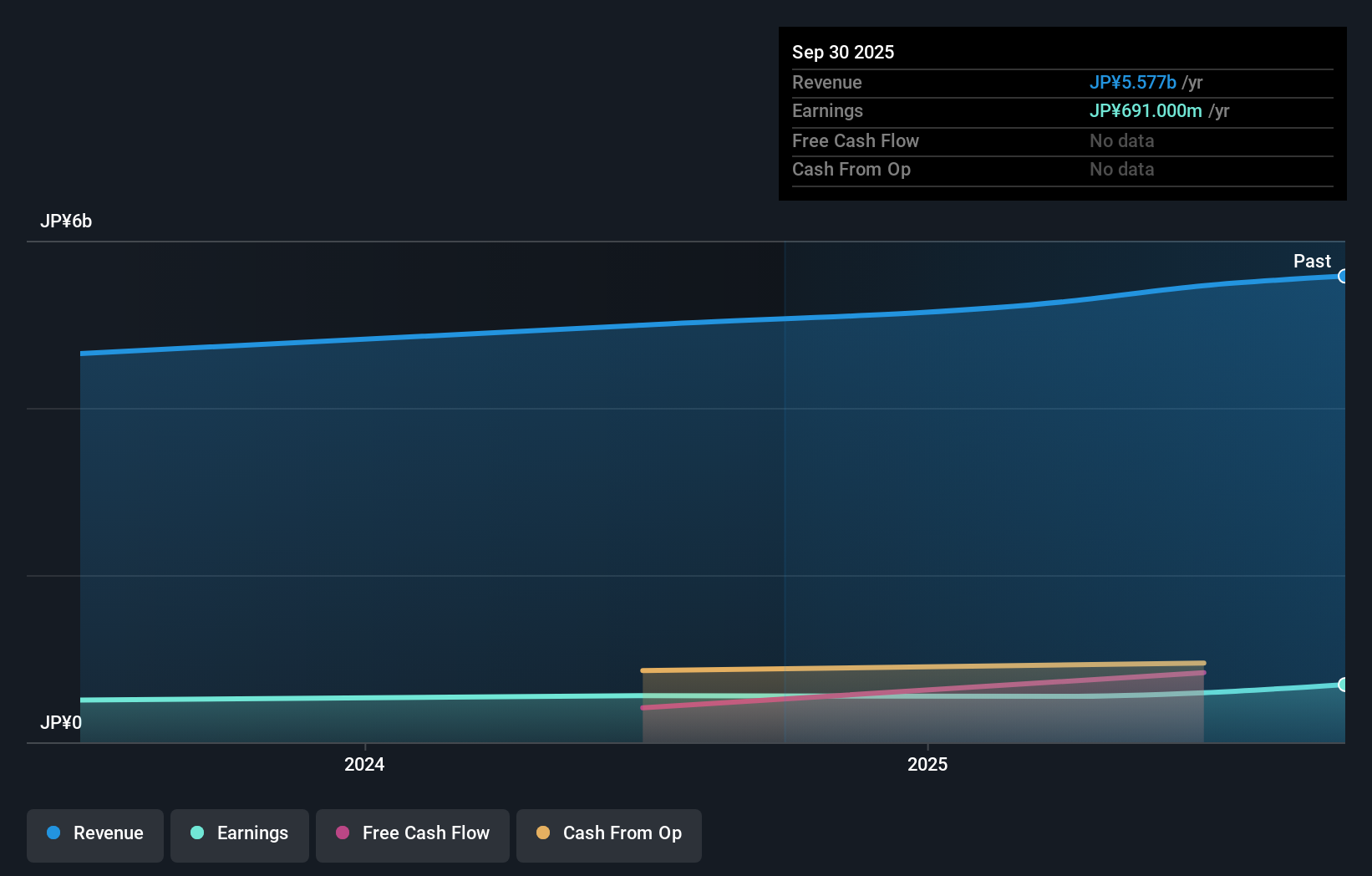Key Insights
- Significant insider control over WOLVES HAND implies vested interests in company growth
- 82% of the business is held by the top 2 shareholders
- Past performance of a company along with ownership data serve to give a strong idea about prospects for a business
To get a sense of who is truly in control of WOLVES HAND Co., Ltd. (TSE:194A), it is important to understand the ownership structure of the business. We can see that individual insiders own the lion’s share in the company with 46% ownership. That is, the group stands to benefit the most if the stock rises (or lose the most if there is a downturn).
Clearly, insiders benefitted the most after the company’s market cap rose by JP¥5.5b last week.
Let’s delve deeper into each type of owner of WOLVES HAND, beginning with the chart below.
View our latest analysis for WOLVES HAND

What Does The Institutional Ownership Tell Us About WOLVES HAND?
Institutional investors commonly compare their own returns to the returns of a commonly followed index. So they generally do consider buying larger companies that are included in the relevant benchmark index.
As you can see, institutional investors have a fair amount of stake in WOLVES HAND. This can indicate that the company has a certain degree of credibility in the investment community. However, it is best to be wary of relying on the supposed validation that comes with institutional investors. They too, get it wrong sometimes. When multiple institutions own a stock, there’s always a risk that they are in a ‘crowded trade’. When such a trade goes wrong, multiple parties may compete to sell stock fast. This risk is higher in a company without a history of growth. You can see WOLVES HAND’s historic earnings and revenue below, but keep in mind there’s always more to the story.

We note that hedge funds don’t have a meaningful investment in WOLVES HAND. Our data shows that Tadashi Kitai is the largest shareholder with 44% of shares outstanding. With 38% and 2.0% of the shares outstanding respectively, J-STAR Co., Ltd. and The Goldman Sachs Group, Inc. are the second and third largest shareholders.
A more detailed study of the shareholder registry showed us that 2 of the top shareholders have a considerable amount of ownership in the company, via their 82% stake.
While it makes sense to study institutional ownership data for a company, it also makes sense to study analyst sentiments to know which way the wind is blowing. We’re not picking up on any analyst coverage of the stock at the moment, so the company is unlikely to be widely held.
Insider Ownership Of WOLVES HAND
The definition of company insiders can be subjective and does vary between jurisdictions. Our data reflects individual insiders, capturing board members at the very least. Company management run the business, but the CEO will answer to the board, even if he or she is a member of it.
Insider ownership is positive when it signals leadership are thinking like the true owners of the company. However, high insider ownership can also give immense power to a small group within the company. This can be negative in some circumstances.
Our information suggests that insiders maintain a significant holding in WOLVES HAND Co., Ltd.. Insiders have a JP¥8.2b stake in this JP¥18b business. This may suggest that the founders still own a lot of shares. You can click here to see if they have been buying or selling.
General Public Ownership
The general public, who are usually individual investors, hold a 11% stake in WOLVES HAND. This size of ownership, while considerable, may not be enough to change company policy if the decision is not in sync with other large shareholders.
Private Equity Ownership
Private equity firms hold a 38% stake in WOLVES HAND. This suggests they can be influential in key policy decisions. Some might like this, because private equity are sometimes activists who hold management accountable. But other times, private equity is selling out, having taking the company public.
Next Steps:
While it is well worth considering the different groups that own a company, there are other factors that are even more important. For example, we’ve discovered 2 warning signs for WOLVES HAND (1 can’t be ignored!) that you should be aware of before investing here.
Of course this may not be the best stock to buy. So take a peek at this free free list of interesting companies.
NB: Figures in this article are calculated using data from the last twelve months, which refer to the 12-month period ending on the last date of the month the financial statement is dated. This may not be consistent with full year annual report figures.
Valuation is complex, but we’re here to simplify it.
Discover if WOLVES HAND might be undervalued or overvalued with our detailed analysis, featuring fair value estimates, potential risks, dividends, insider trades, and its financial condition.
Have feedback on this article? Concerned about the content? Get in touch with us directly. Alternatively, email editorial-team (at) simplywallst.com.
This article by Simply Wall St is general in nature. We provide commentary based on historical data and analyst forecasts only using an unbiased methodology and our articles are not intended to be financial advice. It does not constitute a recommendation to buy or sell any stock, and does not take account of your objectives, or your financial situation. We aim to bring you long-term focused analysis driven by fundamental data. Note that our analysis may not factor in the latest price-sensitive company announcements or qualitative material. Simply Wall St has no position in any stocks mentioned.







